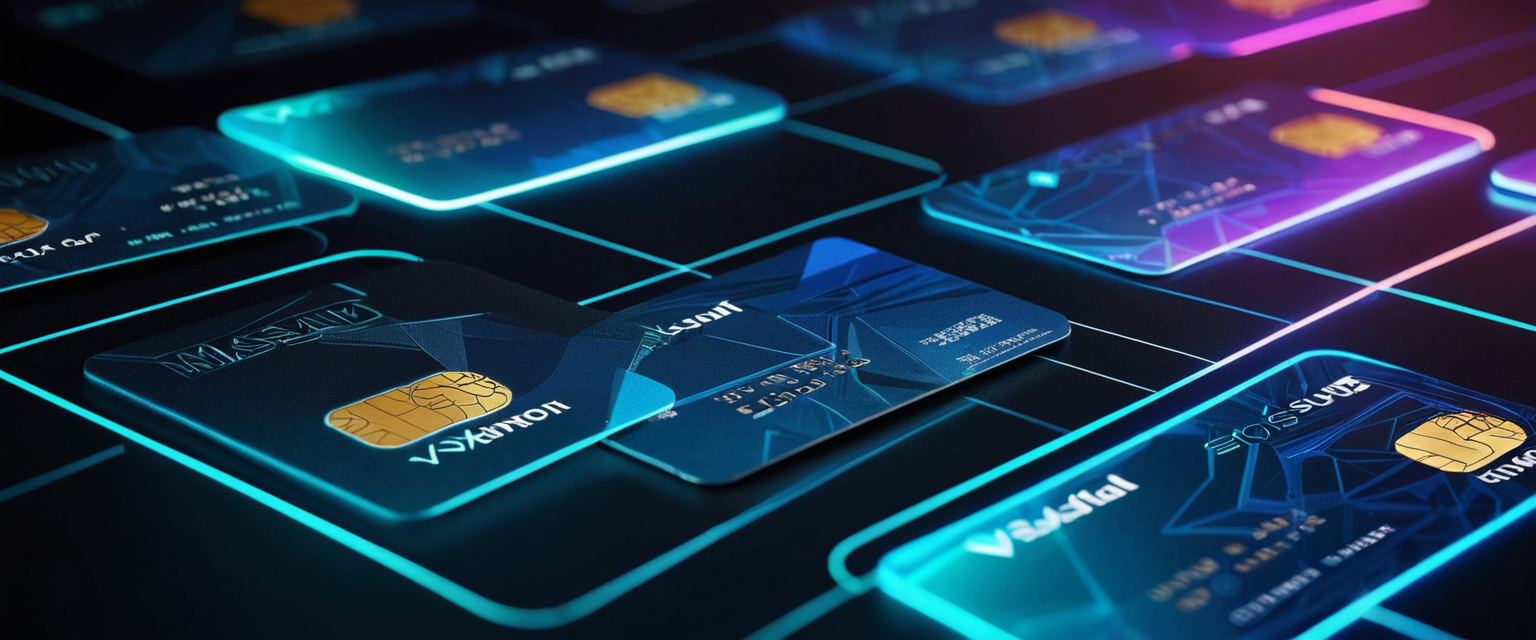
The paradox of virtual private networks presents an intriguing challenge for privacy-conscious users: while a VPN protects your browsing activity and masks your IP address through encrypted tunnels, the payment mechanism used to purchase the VPN service can potentially expose your identity, financial information, and service usage patterns to multiple parties. This comprehensive analysis examines the landscape of privacy-friendly payment options available to VPN users, exploring the technical characteristics, security implications, and practical considerations that differentiate various payment methods in the context of maintaining end-to-end privacy from payment through usage. The intersection of VPN services and anonymous payments represents a critical component of digital privacy infrastructure, particularly for individuals in restrictive jurisdictions, journalists, activists, and privacy-first users who require comprehensive protection across all aspects of their digital footprint.
The Foundation: Understanding Why VPN Payment Privacy Matters
The Disconnect Between VPN Privacy and Payment Transparency
The fundamental principle underlying VPN security centers on the encryption of internet traffic and the masking of user location through remote servers that redirect internet connections. However, this encryption stops at the payment layer, creating what security professionals recognize as a critical vulnerability in the privacy chain. When users purchase VPN subscriptions using traditional methods such as credit cards or bank transfers, they create multiple points of data exposure that operate independently of the VPN’s privacy protections. Traditional payment methods require users to disclose their name, billing address, email address, phone number, and financial account information to the payment processor, VPN provider, or both. This information becomes part of permanent transaction records maintained by financial institutions, payment processors, and potentially the VPN provider itself, creating what researchers describe as “payment metadata” that can establish connections between a user’s identity and their VPN usage.
The significance of payment privacy extends beyond mere personal preference; it represents a structural requirement for certain user populations and threat models. Journalists operating in countries with restricted press freedom, human rights activists documenting government abuses, whistleblowers exposing institutional corruption, and individuals in politically repressive regimes all face scenarios where the simple act of purchasing a privacy tool can trigger legal consequences, financial targeting, or physical harm. In such contexts, the traditional payment infrastructure designed for transparency and regulatory compliance becomes actively hostile to privacy interests, making anonymous payment methods not a luxury enhancement but a fundamental operational necessity. Additionally, data breaches at VPN providers or payment processors have historically exposed millions of user records, making the avoidance of providing personally identifiable information a rational security practice.
The Strategic Value of Payment Anonymity
Beyond the immediate security concerns, anonymous VPN payments serve multiple strategic purposes in the broader privacy ecosystem. First, they prevent the creation of transaction trails that could connect a user’s real identity to their VPN provider, making it significantly more difficult for third parties—including government agencies, corporate investigators, or malicious actors—to establish that an individual is using a VPN service at all. This separation proves particularly valuable in jurisdictions where VPN usage itself is restricted or monitored. Second, anonymous payments eliminate the ability of the VPN provider to sell or share payment information with third parties, a practice that has affected various technology companies over the years. Third, by reducing the amount of personal data required for the transaction, anonymous payment methods inherently reduce the attack surface available to data breaches; if the VPN provider stores no billing information, hackers cannot steal what was never collected.
The practice of paying for VPNs anonymously also addresses what privacy advocates call the “layered privacy stack” concept, where comprehensive protection requires privacy measures applied at multiple levels simultaneously. Just as users employ encrypted messaging, anonymous browsing, and no-logs VPNs as complementary measures, anonymous payment methods represent an additional layer that prevents the payment infrastructure itself from becoming a weak link in an otherwise robust privacy system. This comprehensive approach proves especially critical for individuals whose threat models include sophisticated adversaries with access to financial investigation tools, transaction pattern analysis systems, and data-sharing agreements across multiple institutions.
Cryptocurrency Payments: The Privacy-First Digital Currency Approach
Bitcoin and the Transparency Misconception
Bitcoin emerged as the first widely available cryptocurrency option for anonymous online payments, and while it remains the most recognized cryptocurrency, its privacy characteristics require careful examination because popular misconceptions about Bitcoin’s anonymity could mislead users seeking genuine payment privacy. The Bitcoin blockchain operates as a completely transparent, immutable ledger where every transaction is recorded permanently and accessible to anyone with internet access. While Bitcoin transactions use pseudonymous wallet addresses rather than real names, research has consistently demonstrated that these addresses can be linked to individuals through multiple analytical techniques. A 2024 study found that sixty percent of Bitcoin transactions can be traced back to specific individuals, primarily through analysis of exchange connections where users must provide identity verification to convert between Bitcoin and fiat currencies.
The practical implications of Bitcoin’s traceability became evident in numerous high-profile cases, including the 2020 Twitter hack where attackers demanded Bitcoin payments and were subsequently identified through blockchain analysis of the transactions. Law enforcement agencies and specialized blockchain analysis firms such as Chainalysis have developed sophisticated tools that can track Bitcoin transactions across multiple addresses, correlate them with known exchange deposits, and establish patterns that reveal user identities. Furthermore, research has shown that eighty-five percent of Bitcoin transactions become traceable when connected to exchanges or services requiring identity verification. For individuals genuinely seeking anonymous VPN payments, Bitcoin alone does not provide adequate privacy protection without additional privacy-enhancing measures such as coin mixers or specialized privacy wallets, techniques that add complexity and may themselves attract regulatory scrutiny.
Monero: Privacy as a Default Protocol Feature
Monero (XMR) represents a fundamentally different approach to cryptocurrency privacy compared to Bitcoin, implementing privacy protections directly at the protocol level as default features rather than optional add-ons. Unlike Bitcoin’s transparent blockchain, Monero transactions employ sophisticated cryptographic techniques including ring signatures, stealth addresses, and RingCT (Ring Confidential Transactions) that obscure transaction details including the sender, receiver, and transaction amount on the blockchain itself. These protections apply by default to all Monero transactions without user intervention or configuration, addressing a critical vulnerability of privacy-optional cryptocurrencies where users might fail to implement privacy features correctly, potentially exposing themselves anyway.
The cryptographic design of Monero creates mathematical barriers to transaction tracing that distinguish it significantly from Bitcoin’s analytical traceability. The ring signature component works by mixing an actual transaction input with several decoys, making it computationally difficult to identify which of many possible inputs actually funded a transaction. Stealth addresses ensure that observers cannot link consecutive payments to the same recipient, preventing the accumulation of transaction history around a single wallet address. Confidential transactions hide the amounts transacted, eliminating another vector through which transactions could be correlated and analyzed. When combined, these mechanisms create what researchers describe as “on-chain privacy,” meaning that transaction details remain private based on mathematical properties of the blockchain itself, not through operational practices or third-party services.
However, emerging research reveals that even Monero’s robust privacy mechanisms face potential vulnerability to determined adversaries with sophisticated analytical capabilities. In 2024, the Finnish National Bureau of Investigation traced Monero transactions linked to hacker Julius Kivimäki, successfully gathering evidence that contributed to his court conviction, demonstrating that off-chain metadata leaks and transaction timing analysis can potentially compromise Monero privacy under specific circumstances. Blockchain analysis firms have reported the ability to identify likely Monero senders through infrastructure analysis techniques, such as identifying distinctive transaction patterns, correlating multiple addresses, and analyzing wallet behavior rather than relying on pure cryptographic breaking of Monero’s privacy mechanisms. Additionally, metadata leaks can occur when users provide personal information elsewhere (such as exchange deposits or wallet reuse) that then becomes linkable to their Monero transactions through external analysis.
Despite these emerging challenges, Monero remains the strongest privacy-preserving cryptocurrency available for VPN payments, with major privacy-focused VPN providers including NymVPN, Mullvad, IVPN, and others specifically highlighting Monero support as a centerpiece of their anonymous payment infrastructure. The distinction between Monero’s on-chain privacy and other cryptocurrencies’ optional privacy features makes it the cryptocurrency of choice for users with strong privacy requirements. Many privacy advocates recommend Monero specifically for VPN payments because even if sophisticated forensic analysis eventually connects a Monero transaction to an individual, the analysis requires active investigation rather than passive blockchain monitoring, significantly raising the barrier to casual tracking or mass surveillance.
Zcash: Optional Privacy and Shielded Transactions
Zcash (ZEC) represents an intermediate approach between Bitcoin’s transparent default and Monero’s mandatory privacy, implementing optional privacy features that users can choose to activate rather than applying privacy protections universally. Zcash’s innovative mechanism involves zero-knowledge proofs called zk-SNARKs (Zero-Knowledge Succinct Non-Interactive Argument of Knowledge) that allow transaction verification without revealing transaction details such as sender, receiver, or amount. When Zcash users choose to employ shielded transactions, these zero-knowledge proofs enable the blockchain to confirm transactions as valid without observers being able to analyze the transaction details.
The critical limitation of Zcash for VPN payments lies in its optional nature; while shielded transactions provide strong privacy when users explicitly employ them, the majority of Zcash transactions default to transparent mode where transaction details remain visible on the blockchain. As of recent analysis, approximately eighty-five percent of Zcash’s transaction volume occurs using transparent addresses rather than shielded addresses, meaning that most Zcash transactions provide no meaningful privacy advantage over Bitcoin. Users seeking genuine anonymity must actively choose shielded transactions and configure their wallets correctly, creating operational friction and potential for user error. Furthermore, implementation vulnerabilities have been documented in some Zcash wallets, and the privacy guarantees depend on correct implementation across the entire ecosystem.
Despite these limitations, Zcash’s shielded transactions, when properly utilized, provide strong privacy protections that companies like NymVPN have begun accepting as an alternative to Monero. For users willing to invest effort in configuring their Zcash wallets correctly and selecting shielded transaction options explicitly, Zcash can provide payment privacy comparable to Monero, though the additional complexity increases the likelihood of configuration errors that could undermine privacy.
Implementation Considerations for Cryptocurrency Payments
The process of purchasing a VPN with cryptocurrency involves multiple steps that collectively determine the actual privacy achieved, not merely the privacy properties of the cryptocurrency itself. Users must first acquire cryptocurrency through an exchange, channel, or mining operation, and this acquisition step represents a critical juncture where privacy can be compromised. Regulated cryptocurrency exchanges operating in developed countries typically implement Know Your Customer (KYC) requirements demanding identity verification before allowing users to purchase cryptocurrency, directly linking the exchange account to personal identification documents. In 2025, regulatory data shows that ninety-two percent of centralized cryptocurrency exchanges globally have implemented full KYC compliance, making it extremely difficult to acquire cryptocurrency through mainstream channels while maintaining anonymity.
To maintain privacy through the acquisition phase, users must employ peer-to-peer exchange mechanisms, Bitcoin ATMs operated anonymously, or decentralized exchange platforms where they can purchase cryptocurrency without providing personal identification. Services like Robosats, Haveno, Bisq, and similar peer-to-peer platforms enable users to exchange fiat currency for cryptocurrency without requiring identity verification, though these exchanges typically involve additional complexity and potentially higher transaction fees compared to mainstream exchanges. Bitcoin ATMs allow physical acquisition of cryptocurrency for cash without identity requirements, though they increasingly operate in limited geographic regions and may maintain video recording for security purposes. Decentralized exchanges using protocols like atomic swaps enable direct peer-to-peer cryptocurrency transactions without intermediaries, though these typically require more technical knowledge to operate correctly.
After acquiring cryptocurrency, users must manage their wallet configuration in ways that preserve privacy throughout the transaction history. For privacy coins like Monero, Privacy Guides and other privacy research organizations recommend utilizing non-custodial wallets where users maintain control of private keys, preventing exchanges or wallet services from accessing transaction information. Custodial wallets—where a company holds the private keys—eliminate privacy benefits of privacy coins because the wallet operator can observe all transactions associated with the account. Users should avoid reusing wallet addresses across multiple transactions, as address reuse allows observers to accumulate transaction history around a single address, potentially revealing patterns about user behavior or linking separate transactions to the same individual.
When conducting the actual VPN payment transaction, users should route their transaction through privacy-preserving networks like Tor to prevent their IP address from being directly associated with their wallet address or the VPN provider. Some VPN providers explicitly recommend this practice, and security professionals consider it a best practice for maintaining separation between payment anonymity and usage anonymity. The VPN provider typically receives transaction notification through payment processors like BitPay or CoinGate, which handle the technical details of cryptocurrency acceptance without requiring users to interact directly with the VPN provider’s payment infrastructure.
Traditional Anonymous Payment Methods: Physical and Digital Alternatives
Prepaid Debit Cards and Gift Cards
Prepaid debit cards represent a widely available, relatively accessible method for purchasing VPNs while maintaining a degree of anonymity from the VPN provider, though the actual privacy achieved depends on how users acquire and utilize these cards. Unlike credit cards that link directly to bank accounts and personal financial records, prepaid debit cards operate as standalone payment instruments where funds are loaded onto the card separately from the user’s primary financial infrastructure. When users purchase prepaid cards using cash at retail locations, they create a transaction that leaves minimal connection to their personal identity, as most prepaid card purchases require no identification when purchased with physical currency.
The privacy advantage of prepaid cards operates on multiple levels: first, the purchase transaction itself creates no permanent record connecting the cardholder’s identity to the card, second, the VPN provider receives only the limited payment information from the card transaction (typically only confirming payment via the card network), and third, the card cannot be linked to the user’s broader financial profile since it exists independently from bank accounts or credit reporting systems. However, important limitations apply to prepaid card privacy. Many prepaid cards now impose activation requirements, identity verification for cards above certain value thresholds, and reporting requirements for cash loads over specified amounts, depending on jurisdiction and card issuer. Additionally, prepaid cards often carry activation fees, monthly maintenance fees, and transaction fees that accumulate costs beyond the VPN subscription itself.
Gift cards specifically designated for retail merchants represent an extension of the prepaid card approach, where users purchase gift cards for retailers (such as Amazon, Target, Walmart, or Best Buy) using cash, then use those gift cards to purchase VPN subscriptions if the VPN provider has partnered with the relevant retailer. This approach fragments the transaction chain further, as the VPN provider cannot directly connect the gift card purchase to the user’s identity because the gift card was purchased through a retail network rather than payment processors directly connected to the VPN service. As of 2025, relatively few VPN providers accept gift cards, with NordVPN being one of the most prominent services offering this payment method, along with Private Internet Access accepting gift cards from retailers including Walmart, Target, Best Buy, and others.
The practical advantage of gift cards lies in their simplicity and accessibility; users need not understand cryptocurrency technology or locate peer-to-peer exchanges but can simply purchase gift cards from any major retailer, a process familiar to most consumers. However, the limitation of limited provider support means that users seeking this payment method have fewer VPN options compared to other payment mechanisms, and some providers accepting gift cards may not represent the most privacy-protective VPN services available.

Virtual and Masked Credit Cards
Virtual credit cards represent a technological approach to payment privacy that addresses a different threat model than true anonymity; they provide what researchers describe as “masking” rather than true anonymity because they protect payment card information from specific merchants while typically maintaining records within the cardholder’s financial institution. Virtual cards work by generating unique, temporary card numbers that can be used for online transactions, with each virtual card potentially limited to a single merchant or locked to the first merchant where it is used. If a merchant’s database is compromised and payment card information is stolen, the virtual card number cannot be used for fraudulent purchases at other merchants, and the card can be cancelled without affecting the user’s actual payment instrument.
Services like Privacy, developed specifically for online payment privacy, exemplify this technology by generating anonymized sixteen-digit card numbers that are never directly associated with the user’s real payment card information from the merchant’s perspective. These virtual cards can be paused, closed, or configured with spending limits to prevent unauthorized or excessive charges. When users pay for VPN services with virtual cards, the VPN provider receives the virtual card number rather than the actual payment card number, protecting the primary financial instrument from breach exposure at the VPN provider’s systems.
However, virtual cards provide only partial privacy from the VPN provider and related payment infrastructure; while the VPN provider cannot access the user’s actual card number, the payment processor handling the transaction maintains records of the virtual card transaction, and if the virtual card is linked to a personal account (which most are), the payment remains visible in the account holder’s transaction history. Additionally, virtual card services typically require identity verification through Know Your Customer procedures, meaning the service provider maintains personal identification information on file even though merchants never see this information. Virtual cards thus provide merchant-level payment privacy while maintaining institutional payment privacy within banks and payment processors. For users seeking protection specifically against merchant data breaches rather than comprehensive payment anonymity, virtual cards offer a practical solution with lower technical requirements than cryptocurrency payments.
Protect Your Digital Life with Activate Security
Get 14 powerful security tools in one comprehensive suite. VPN, antivirus, password manager, dark web monitoring, and more.
Get Protected NowGoogle Pay and Digital Wallet Services
Google Pay and similar digital wallet services (including Apple Pay, Samsung Pay, and similar technologies) offer a middle-ground approach to payment privacy that operates by creating a separation between the user’s payment card and the merchant. When users pay for VPN services through Google Pay, the actual payment card information is not transmitted to the VPN provider; instead, a tokenized version of the payment is sent, along with limited information such as the user’s email address associated with the Google account. From the VPN provider’s perspective, the transaction appears to come through Google’s payment infrastructure rather than directly from a payment card, preventing direct exposure of card details to the VPN provider’s systems.
The privacy benefit of Google Pay for VPN payments specifically relates to the separation of payment card information from VPN provider systems; if the VPN provider experiences a data breach, payment card details are not exposed because they never reached the provider’s infrastructure. Additionally, users can create throwaway email addresses specifically for Google Pay accounts, reducing the connection between their primary email identity and their VPN subscription. However, Google Pay does not provide true anonymity from Google itself or from payment processors in the broader financial system; Google maintains complete records of payments made through Google Pay, and these transactions remain visible through the user’s Google account, payment card, and bank records. The relationship between the user’s payment card and the VPN purchase remains traceable through payment processors and financial institutions even though the VPN provider lacks direct access to this information.
For users whose threat model focuses on protecting merchant-level payment card exposure rather than comprehensive payment anonymity, Google Pay offers genuine privacy benefits through payment card tokenization. However, for users in jurisdictions with invasive surveillance, those seeking protection from government financial monitoring, or those for whom government access to transaction records represents a primary concern, Google Pay does not provide sufficient privacy because government agencies can still access transaction records through banks and payment processors. Additionally, users should recognize that Google Pay transactions remain linked to their Google account, and Google’s privacy policies regarding payment data retention may not align with comprehensive privacy requirements.
Cash Payments
Cash represents the most fundamentally anonymous payment method available, creating no digital record of the transaction when physical currency exchanges hands without identification requirement or third-party involvement. For VPN payments specifically, cash has historically been offered by only a small number of providers willing to accept mailed cash payments or retail box sales. Proton VPN explicitly accepts cash payments through mail, requesting users to send physical currency envelopes to their Geneva, Switzerland address along with payment tokens to identify which account should receive credit. Similarly, Mullvad accepts cash payments through mail, with users able to send cash in multiple currencies (EUR, USD, GBP, and others) along with randomly generated account numbers. This approach provides genuine anonymity from the VPN provider because no payment infrastructure, digital transactions, or personal identification requirements enter the transaction.
The practical limitations of cash payments significantly restrict their accessibility and convenience; users must physically mail currency, which introduces risks of loss, theft, or interception during shipping; payment processing times extend from days to potentially weeks as the VPN provider receives and processes mailed payments; and users sacrifice any refund or charge-back protections available with digital payment methods. Additionally, most providers accepting cash explicitly exclude these payments from refund guarantees; if the mailed cash is lost in transit or the payment never arrives, most providers do not offer refunds because they cannot reverse cash payments to the sender. Furthermore, sending large sums of cash through mail may violate financial reporting requirements in some jurisdictions, and the practice draws attention from both postal services and payment regulatory systems.
Despite these limitations, cash payments hold particular value for users in jurisdictions where financial surveillance represents a primary threat, where government monitoring of bank transactions or payment processor records is systematic, or where cryptocurrency acquisition has been deliberately restricted. In such contexts, the inconvenience and risks associated with mailed cash payments represent an acceptable trade-off compared to the absolute exposure created by payment processor surveillance. Additionally, cash payments by mail create a paper trail visible to postal services rather than a digital trail visible to financial institutions and internet service providers, which may align better with certain threat models.
Comparative Analysis of VPN Providers with Privacy-First Payment Options
Mullvad: The No-Compromise Privacy Model
Mullvad VPN exemplifies the privacy-first approach to VPN payment options, implementing practices specifically designed to minimize data collection while maintaining straightforward accessibility. The service accepts cash, Bitcoin, Bitcoin Cash, Monero, and bank transfers alongside traditional credit card and PayPal options, positioning itself as uncommonly comprehensive in anonymous payment support. Notably, Mullvad implements account generation without requiring any email addresses, names, or personal information; users simply click a button to generate a random sixteen-digit account number that serves as both username and authentication credential. This approach eliminates entirely the linkage between personal identity and account creation, a distinction that distinguishes Mullvad from many competitors requiring email addresses even for anonymous cryptocurrency payments.
The pricing model of Mullvad further supports privacy interests; the service charges a flat €5 per month regardless of subscription length, without discounts for longer commitments. This flat-rate approach eliminates incentives for users to pre-pay substantial sums at once, potentially reducing exposure if a user’s account or credentials became compromised. Users can add monthly credits to their account through any accepted payment method without committing to long-term subscriptions, providing flexibility that accommodates anonymous payment methods that cannot support recurring billing. Monero payments receive a ten percent discount compared to the standard €5 monthly rate, reducing the cost to €4.50 per month for Monero users, an explicit incentive acknowledging the environmental and privacy benefits of privacy coin transactions.
Mullvad’s infrastructure reflects privacy commitments throughout the technical architecture; the service operates RAM-only servers that automatically clear all data upon server reboot, preventing potential recovery of data from physical storage devices. The service maintains strict no-logs policies audited by Radically Open Security, with multiple independent audits confirming the absence of IP address logs, bandwidth logs, DNS logs, or timestamp records. The Swedish jurisdiction provides reasonably privacy-friendly operating conditions despite Sweden’s membership in the Fourteen Eyes surveillance alliance, primarily because Swedish privacy regulations permit no-logs policies while neighboring jurisdictions impose mandatory data retention requirements. User survey data consistently positions Mullvad among the most trusted privacy-focused VPN services, particularly among cybersecurity professionals and privacy researchers.
IVPN: Privacy Architecture with Cryptocurrency Options
IVPN (Invisible VPN) represents another strong implementation of privacy-first payment options combined with robust VPN architecture, accepting cash, Monero, Bitcoin, and prepaid cards as anonymous payment methods. Similar to Mullvad, IVPN generates random account numbers without requiring email addresses, names, or personal information during registration, eliminating the personal identification chain from account creation. The service operates from Gibraltar, a jurisdiction offering strong privacy advantages through the absence of membership in international surveillance alliances while still maintaining stable legal frameworks and modern privacy regulations.
IVPN pricing includes both “Standard” plans supporting two simultaneous device connections and “Pro” plans supporting seven device connections, with monthly costs ranging from $3.89 to $6.00 for Standard plans and $6.11 to $10.00 for Pro plans depending on subscription length. The service implements a thirty-day money-back guarantee for most payment methods, though notably this guarantee does not extend to cash or cryptocurrency payments, reflecting the irreversible nature of these payment mechanisms. IVPN accepts cash payments on annual plans, where users can mail currency to IVPN’s address and receive account credit without providing identification beyond the account number they provide for verification.
The service underwent multiple independent security audits from Cure53, one of the cybersecurity industry’s most respected auditing firms, verifying the no-logs policy and security architecture. IVPN explicitly refuses to operate with virtual private servers or shared hosting infrastructure, instead utilizing dedicated servers where IVPN maintains complete control over the physical hardware, eliminating potential vulnerabilities from co-location with other customers’ systems.
NordVPN: Mainstream Privacy with Anonymous Payment Options
NordVPN represents the largest VPN service provider accepting anonymous payment methods, achieving significant market penetration while maintaining privacy-focused payment infrastructure and strong security credentials. Based in Panama, a jurisdiction carefully selected for its absence from international surveillance alliances and lack of mandatory data retention requirements, NordVPN provides legal operating conditions supporting genuine no-logs policies. The service underwent audits by four separate independent auditing firms (PwC, Deloitte Audit Lithuania, and others) verifying the no-logs policy, lending substantial credibility to privacy claims.
NordVPN uniquely accepts gift cards purchased from retail locations including Walmart, Target, Best Buy, and numerous other retailers, making anonymous VPN payment accessible to users without cryptocurrency knowledge or skills. The service also accepts cryptocurrency payments including Bitcoin and other cryptocurrencies, prepaid debit cards, and virtual masked credit cards. Users can purchase NordVPN physical boxes from retail locations, paying cash at the store counter for a physical box containing an activation code and instructions, providing an alternative to digital payment infrastructure entirely. This retail box approach represents one of the few physical product delivery methods for VPN services, offering genuine anonymity through retail payment channels.
However, NordVPN requires email addresses for account registration, distinguishing it from Mullvad and IVPN’s approach of generating account numbers without personal information requirements. While users can provide throwaway email addresses to minimize personal identification linkage, this approach still introduces an additional data point compared to the pure account number generation model. Additionally, NordVPN maintains subscription discounts for longer-term commitments, potentially incentivizing larger upfront payments through cryptocurrency or other anonymous methods, a practice that contrasts with Mullvad’s flat-rate approach.
Proton VPN: Privacy Suite with Comprehensive Payment Options
Proton VPN, operated by the company behind the encrypted email service Proton Mail, implements privacy commitments reflected in its VPN payment infrastructure. Based in Switzerland, which maintains robust privacy protections through the absence of mandatory data retention requirements and strong consumer privacy laws, Proton VPN operates from an advantageous jurisdictional position supporting no-logs policies. The service explicitly accepts cash payments through mail, Bitcoin, credit/debit cards, PayPal, and bank transfers, offering more payment method diversity than most competitors.
Proton VPN’s thirty-day money-back guarantee explicitly excludes cash and bank transfer payments, reflecting institutional policies around irreversible payment methods. The service requires email addresses for account registration, following a more traditional model compared to Mullvad and IVPN, though users can create throwaway email addresses to minimize personal identification linkage. Proton VPN integrates with the broader Proton ecosystem including Proton Mail encrypted email, Proton Calendar, and Proton Drive encrypted storage, offering comprehensive privacy-focused services through a single provider.
The company has maintained strong transparency through published security audits and regular transparency reports regarding government data requests and legal processes. Proton VPN operates approximately nine thousand servers across one hundred twelve countries, one of the largest server networks among privacy-focused VPN providers, enabling strong streaming capabilities while maintaining strict no-logs policies.
Technical and Regulatory Considerations
Know Your Customer Requirements and VPN Payment Processing
The cryptocurrency and fintech payment landscape has experienced substantial regulatory evolution throughout 2024 and into 2025, with significant implications for VPN payment processing infrastructure. By 2025, approximately eighty-five percent of materially important jurisdictions have implemented Financial Action Task Force (FATF) “Travel Rule” regulations requiring cryptocurrency exchanges to obtain, maintain, and share customer information about transaction originators and beneficiaries. This regulatory environment has effectively eliminated anonymity for cryptocurrency acquisition at mainstream exchanges in developed jurisdictions, forcing privacy-conscious users toward peer-to-peer exchanges, Bitcoin ATMs, or decentralized platforms.
Cryptocurrency exchanges themselves have become heavily regulated; ninety-two percent of centralized cryptocurrency exchanges globally now implement full Know Your Customer (KYC) compliance, requiring photo identification, address verification, and proof of income documentation before allowing cryptocurrency purchases. This regulatory evolution has directly impacted the utility of cryptocurrency for VPN payments, as users who acquire Bitcoin or Ethereum through regulated exchanges cannot claim complete anonymity even though the cryptocurrency transactions themselves use pseudonymous wallet addresses. VPN providers accepting cryptocurrency have adapted by explicitly recommending that users acquire cryptocurrency through peer-to-peer channels or Bitcoin ATMs to minimize their personal identification linkage.
Payment Card Industry (PCI) Data Security Standard compliance imposes substantial requirements on VPN providers accepting credit card payments, requiring end-to-end encryption, fraud detection systems, access controls, and security audits that significantly increase operational overhead. These regulatory requirements have created an operational incentive for VPN providers to offer alternative payment methods including cryptocurrency and other systems that bypass traditional payment processor networks, as maintaining complex PCI compliance infrastructure involves substantial costs and ongoing audit requirements.

VPN Jurisdictional Implications for Payment Privacy
The jurisdiction where a VPN provider operates determines which laws govern data retention, government surveillance cooperation, and privacy protections. Jurisdictions including Panama, the British Virgin Islands, Switzerland, and Iceland specifically lack mandatory data retention requirements and maintain strong privacy protections, making them attractive locations for privacy-focused VPN providers. Conversely, jurisdictions including Canada, Australia, and the United States maintain either Five Eyes alliance surveillance agreements or mandatory data retention laws that could be used to pressure VPN providers into maintaining payment records beyond what privacy policies suggest.
This jurisdictional analysis extends to payment processing infrastructure; VPN providers operating from favorable privacy jurisdictions may still route payment processing through payment processors located in surveillance-intensive jurisdictions, potentially exposing transaction records to government surveillance or data access requests. Privacy-conscious VPN providers specifically select payment processors and cryptocurrency payment gateways with favorable jurisdictional characteristics, attempting to maintain end-to-end privacy from payment acquisition through VPN provider systems.
API Integration and Payment Processor Selection
VPN payment processing infrastructure relies on payment processors and gateway providers that handle the technical details of various payment methods. Major processors like Stripe, PayPal, and specialized cryptocurrency processors like BitPay and CoinGate provide APIs and integration tools enabling VPN providers to accept multiple payment methods without developing custom payment systems for each method. The processor selection determines which payment methods are available to users, the fees charged for each transaction, and the data handling practices applied to payment information.
Privacy-focused VPN providers specifically select processors with favorable privacy policies and jurisdictional characteristics; Mullvad and Proton VPN explicitly detail their processor selections and payment flow architecture to transparent communicate data handling practices. Cryptocurrency payment processing through BitPay and CoinGate enables VPN providers to accept diverse cryptocurrencies without maintaining complex cryptocurrency infrastructure internally, as these processors handle wallet management, exchange rate conversion, and stablecoin settlement.
Implementing Private VPN Payments: Practical Best Practices
Cryptocurrency Payment Workflow
Users seeking to purchase VPN subscriptions with cryptocurrency should follow a structured workflow emphasizing privacy at each step. First, users should acquire cryptocurrency through a peer-to-peer exchange, Bitcoin ATM, or decentralized platform rather than regulated exchanges requiring identity verification, maintaining separation between their personal identity and their cryptocurrency holdings. Services including Robosats, Bisq, Haveno, and LocalBitcoins enable direct cryptocurrency transactions with minimal identification requirements, though users should research current availability and regulatory status in their specific jurisdictions.
Second, users should transfer acquired cryptocurrency to a non-custodial wallet where they maintain complete control of private keys, preventing any third-party service from accessing their transaction history or wallet contents. For Monero specifically, users should utilize recommended privacy wallet implementations that enforce best practices for transaction privacy. For Bitcoin users seeking privacy improvements, specialized privacy wallet implementations like Wasabi Wallet employ techniques such as coin joining to obscure transaction sources and destinations.
Third, users should route their payment through privacy-preserving networks like Tor Browser to prevent their IP address from being directly associated with their cryptocurrency transaction, wallet address, or VPN provider payment infrastructure. Many VPN providers recommend this practice explicitly, recognizing that preventing IP-level association between user identity and VPN payment represents an important privacy protection.
Fourth, users should complete the payment transaction with the VPN provider, following the provider’s specific instructions for their chosen cryptocurrency method. Most providers route cryptocurrency payments through payment processors that handle cryptocurrency receipt and conversion, providing the VPN provider with completed transaction notifications without requiring direct wallet interactions.
Multi-Method Privacy Strategy
Rather than relying exclusively on a single payment method, privacy researchers and security professionals recommend employing a multi-method privacy strategy that distributes payment decisions across multiple mechanisms based on specific threat models and use cases. For users with lower-threat-level requirements and convenience preferences, prepaid cards or virtual cards offer reasonable privacy without substantial technical complexity. For users requiring stronger privacy protections, cryptocurrency payments through privacy-focused providers like Mullvad represent more robust solutions.
Advanced practitioners may employ multiple VPN services paid through different anonymous methods, preventing any single payment infrastructure from completely revealing their VPN usage patterns. Additionally, users may rotate between payment methods over time, avoiding establishing patterns that could correlate multiple payments to a single user. While such practices add operational complexity, they support comprehensive threat models recognizing that sophisticated adversaries may attempt to reverse-engineer VPN usage patterns through payment infrastructure analysis.
Avoiding Common Privacy Mistakes
Users frequently compromise their payment privacy through operational errors that negate the security benefits of anonymous payment methods themselves. A common mistake involves acquiring cryptocurrency from regulated exchanges under personal accounts, then attempting to achieve payment anonymity through cryptocurrency transactions themselves; this approach fails to protect anonymity because the exchange maintains complete identification records linking the user to the cryptocurrency holdings regardless of subsequent privacy of cryptocurrency transactions.
Additional common errors include reusing cryptocurrency wallet addresses across multiple VPN payments, using the same email address for multiple anonymous VPN accounts, or failing to protect cryptocurrency wallet private keys through secure storage mechanisms. Users may inadvertently link anonymous VPN payments to personal identity by conducting payment transactions from their personal devices while simultaneously browsing the internet with personal identification, allowing ISPs or network monitors to correlate the payment activity with the identified user.
Particularly sophisticated operational security mistakes involve creating distinct anonymous email addresses and throwaway identities for multiple VPN providers, but then reusing the same payment method across all accounts; this approach allows attackers or investigators to identify all linked VPN accounts through payment infrastructure analysis, even though the accounts themselves use distinct identities. Avoiding these mistakes requires disciplined operational practices and, in many cases, technical expertise beyond casual users’ typical skill levels, a factor contributing to the relative rarity of truly anonymous VPN payment implementation in practice.
Trade-offs and Limitations of Anonymous VPN Payment Methods
Privacy Versus Convenience and Cost
Each anonymous payment method available for VPN subscriptions involves specific trade-offs between privacy protection levels, convenience of implementation, cost structure, and accessibility to typical users. Cash payments through mail offer maximum anonymity but require physical currency acquisition, postal mailing with inherent loss and delay risks, and acceptance limitations from VPN providers. Cryptocurrency payments offer strong privacy when executed correctly through non-custodial wallets and privacy coins, but require cryptocurrency acquisition infrastructure knowledge, wallet management skills, and trading friction that casual users typically lack.
Prepaid cards and gift cards offer reasonable privacy accessible to mainstream users without technical knowledge, but carry additional fees, accept limitations from card issuers, and are supported by relatively few VPN providers. Virtual masked credit cards provide merchant-level payment privacy with minimal additional complexity beyond standard credit card payments, but maintain visibility within the user’s personal financial infrastructure.
The practical consequence of these trade-offs means that truly private VPN payments require users to sacrifice convenience, accept higher costs, and often invest substantial time and effort in learning cryptocurrency ecosystems or payment infrastructure mechanics. These barriers mean that anonymous VPN payment remains more common among security professionals, privacy-focused individuals, and those facing genuine threats compared to mainstream users who typically prioritize convenience over comprehensive anonymity.
Refund Policies and Reversibility Limitations
Anonymous payment methods create irreversibility characteristics that fundamentally differ from traditional payment methods, imposing practical constraints on VPN provider business models and user protections. Cryptocurrency transactions cannot be reversed once confirmed on the blockchain; if a user makes an error such as sending cryptocurrency to an incorrect address or to the wrong VPN provider wallet, the funds cannot be recovered. Similarly, cash payments cannot be reversed or refunded once the VPN provider receives them, as there exists no mechanism to reverse physical currency transfer through mail.
In response to these irreversibility characteristics, most VPN providers exclude anonymous payment methods from money-back guarantee programs that typically allow customers to request refunds within specified periods if dissatisfied with service. Mullvad explicitly offers a fourteen-day money-back guarantee for all payment methods including cryptocurrencies and cash, an exception representing genuine confidence in service quality, though even Mullvad excludes cash payments from refunds due to anti-money-laundering compliance obligations. Most mainstream providers including Proton VPN, IVPN, and others exclude anonymous payment methods from refund programs entirely, requiring users to forfeit standard customer protections when selecting privacy-first payment methods.
This trade-off means that users selecting anonymous payment methods also assume greater risk of dissatisfaction with VPN service; if a user purchases a VPN subscription through cryptocurrency but later discovers service quality issues, connectivity problems, or feature limitations, the user typically cannot recover their payment. This risk structure has created practical pressure for anonymous payment users to research VPN services extensively before payment and to select established providers with strong track records, reducing access to potentially innovative smaller services that lack extensive user bases providing confidence through reviews and recommendations.
Regulatory Evolution and Cryptocurrency Market Changes
The cryptocurrency market and regulatory landscape has experienced substantial evolution that affects VPN payment infrastructure accessibility. By 2025, the cryptocurrency industry has faced increasing regulatory pressure particularly focused on privacy coins; regulators including the U.S. Financial Crimes Enforcement Network (FinCEN) have proposed or implemented restrictions on privacy coin trading through regulated exchanges, effectively limiting mainstream access to privacy coins like Monero. Several cryptocurrency exchanges including Kraken removed Monero trading pairs in response to regulatory pressure, and comprehensive analysis suggests continued pressure toward restricting privacy coin availability.
Simultaneously, the broader cryptocurrency market has experienced price volatility that affects the practical utility of cryptocurrencies for specific purchases like VPN subscriptions. Users who acquire Bitcoin at elevated prices and then pay for VPN subscriptions during market downturns realize substantial losses compared to fiat currency acquisition; conversely, users acquiring cryptocurrency during downturns and paying during price upturns pay substantially more in fiat terms than the cryptocurrency’s original value. This volatility creates pricing friction and financial risk that further complicates cryptocurrency-based VPN payments for budget-conscious users.
The regulatory evolution has also impacted peer-to-peer cryptocurrency exchange infrastructure; platforms including LocalBitcoins significantly reduced peer-to-peer Bitcoin trading volume and geographic availability in response to regulatory requirements and compliance burden, narrowing user options for non-custodial cryptocurrency acquisition. The combination of regulatory pressure, cryptocurrency volatility, and platform consolidation has made genuinely anonymous cryptocurrency acquisition substantially more difficult compared to the mid-2010s period when privacy coins and decentralized exchanges were more readily available.
Your Final Step Towards True VPN Privacy
Privacy-friendly VPN payment options represent a critical component of comprehensive digital privacy infrastructure, enabling users to maintain anonymity across the full transaction lifecycle from payment acquisition through VPN usage to browsing activity protection. The landscape of available payment methods reflects a spectrum of privacy protection levels, convenience trade-offs, accessibility barriers, and cost considerations that collectively determine the practical utility of each method for distinct user populations and threat models.
Cryptocurrency payments, particularly through privacy-focused cryptocurrencies like Monero utilizing protocol-level privacy features, offer the strongest payment privacy when executed correctly through non-custodial wallets acquired through peer-to-peer channels. However, these methods impose substantial technical complexity, operational friction, and require comprehensive understanding of wallet management, address usage practices, and transaction routing to avoid mistakes that compromise privacy. The regulatory evolution of cryptocurrency markets has also constrained access to privacy coins in particular, making this payment method increasingly difficult for mainstream users.
Prepaid cards and gift cards provide reasonable payment privacy accessible to mainstream users without technical expertise, with prepaid cards particularly useful for users seeking to separate VPN payments from primary financial infrastructure. However, the acceptance of these payment methods remains limited among VPN providers, card availability varies by jurisdiction, and additional fees apply that increase the effective cost of VPN subscriptions beyond advertised prices.
Virtual masked credit cards offer a practical compromise between privacy and convenience, protecting payment card information from VPN provider systems through merchant-level card masking while maintaining reasonable accessibility for users with existing credit card infrastructure. However, these methods do not provide anonymity from financial institutions or payment processors, limiting their utility for users whose threat models include financial surveillance.
Cash payments through mail represent the most fundamentally anonymous option available, creating no digital transaction records and eliminating any technological infrastructure involvement in the payment process. However, the extreme inconvenience, mail system risks, slow processing times, and limited provider acceptance make this method primarily useful for high-threat-model users for whom convenience becomes secondary to comprehensive anonymity.
VPN providers implementing privacy-first payment architectures, including Mullvad, IVPN, Proton VPN, and NordVPN among others, have recognized the importance of anonymous payment options and implemented multiple payment methods supporting diverse user needs and threat models. These providers particularly distinguish themselves through technical implementations including no-logs policies, non-custodial account generation, favorable jurisdictional characteristics, and independent security audits that validate privacy commitments beyond payment processing specifically.
The evolution of VPN payment privacy represents an ongoing adaptation to regulatory pressures, technological developments, and emerging threats within the broader digital privacy landscape. Users seeking comprehensive privacy through anonymous VPN payments should recognize that payment privacy alone does not constitute complete anonymity; successful implementation requires complementary privacy practices including VPN selection based on proven no-logs policies, jurisdictional analysis, and operational security disciplines across the entire VPN usage lifecycle. The investment of effort and resources into anonymous VPN payment reflects a recognition that the payment infrastructure represents a critical weak point in the privacy chain, and that protecting this linkage requires deliberate technical and operational practices extending beyond the VPN service itself.






